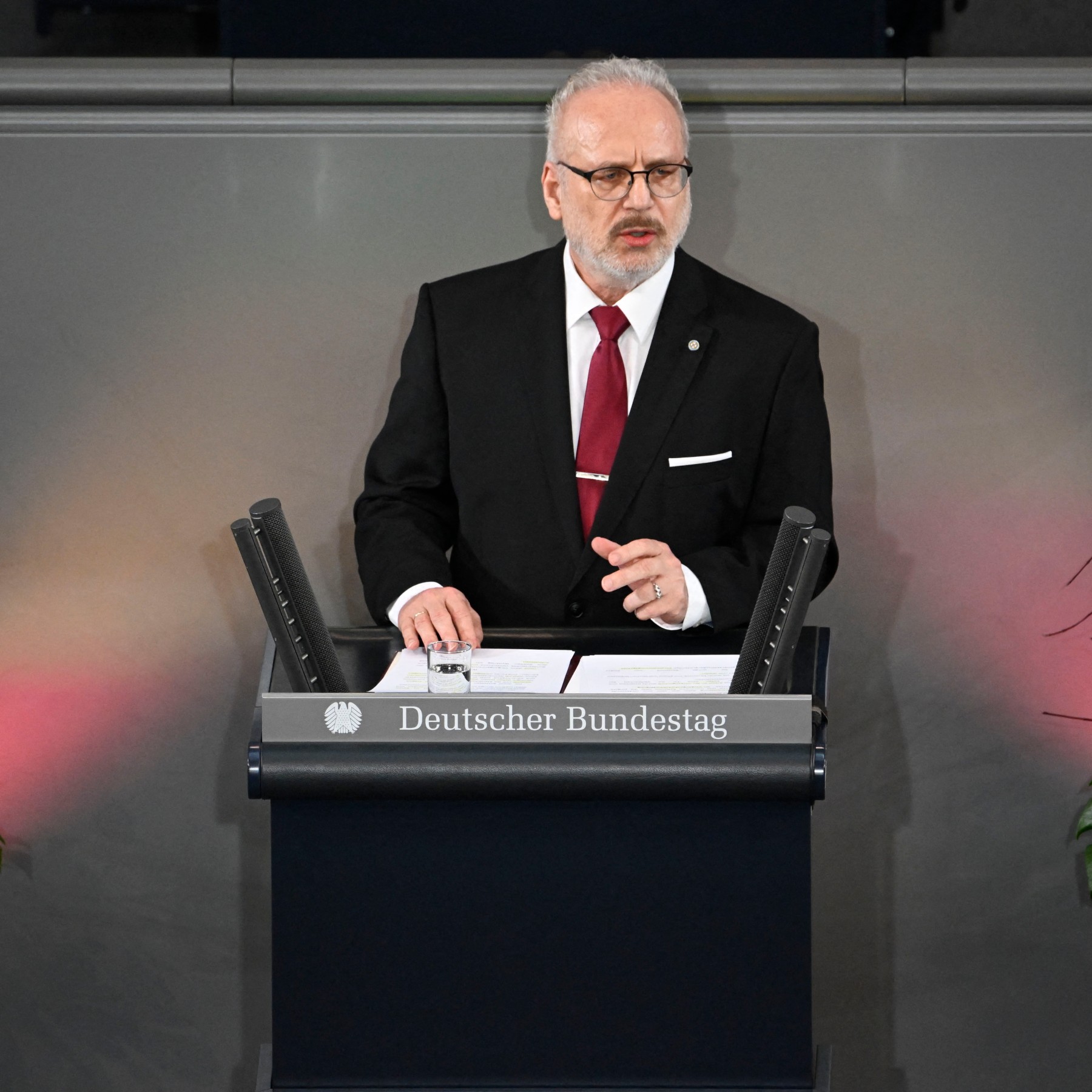The president of Latvia has encouraged Western nations to increase military aid to Ukraine in order to set up the war-torn nation to fight back against a potential new Russian onslaught in February.
President Egils Levits said on Monday on the sidelines of the World Economic Forum, “We should give Ukraine all necessary support, especially because Russia is preparing an offensive in Ukraine for February and March, and Ukraine should have all necessary weapons and support to resist this offensive.”
Therefore, wherever possible, all tanks should be transferred to Ukraine, he stated.
Days prior to their participation in the Ukraine Defense Contact Group at the US Ramstein Air Base in Germany, Western defense officials are scheduled to get the call.
According to a statement from the transatlantic military alliance, at the meeting on Friday, which will be chaired by US Secretary of Defence Lloyd Austin, nations are scheduled to discuss Ukraine and associated security problems affecting NATO allies and partners.
Levis’ comments were made as the United Kingdom made history by promising to send heavy tanks to Ukraine. Poland and Finland have also expressed a desire to send tanks produced in Germany to Kiev, but doing so would need Berlin’s permission.
A wider shift for European allies who have so far resisted directly supplying Ukraine with some types of heavy weapons since Russia’s invasion began in February may have been signaled by NATO Secretary-General Jens Stoltenberg’s comments on Sunday that he expected Western nations to increase heavy weapon deliveries to Ukraine.
The gathering of Ukraine’s supporters follows Russian forces’ significant victory on the battlefield with the capture of Soledar, a small salt mining town adjacent to Bakhmut, a strategically vital city in the eastern Donetsk region. According to Ukraine, the battle is still going on in the town.
It is in the best interest of everyone in the world, especially for all NATO and European countries to provide the support in order to let Ukraine win the war, said Levits. “There is a lot of potential for Western NATO countries to increase their support for Ukraine,” he added.
“Peace wouldn’t come about until Ukraine had liberated the entire region. And a permanent peace is something that we are all interested in, he continued.
The president of Latvia pressed for the creation of a special court to try the Russian leadership for the crime of aggression.
His appeal comes amid a months-long campaign by Kiev and several other Western nations to have Russian leaders held accountable for invading Ukraine.
“This is the biggest breach of peace order and international law… And there is now no international court that could handle this crime of aggression. Therefore, this is a proposal to establish a special tribunal of Russian aggression against Ukraine, and Latvia is in favour of this, said Levits.
Since Russia is not a party to the ICC, it is not possible for the ICC to charge its citizens with the crime of aggression. If the UN Security Council (UNSC) forwarded the matter to the ICC, it may begin a prosecution, although this is unlikely given that Moscow has veto power at the UNSC. It would be difficult to directly connect alleged war crimes and crimes against humanity in Ukraine to orders from the Kremlin. However, the international court is looking into these allegations.
When Ursula von der Leyen, the president of the European Commission, endorsed the idea in December, the movement for a special tribunal gained traction. Soon after, France became the first European government to officially proclaim support, and on Monday, German Foreign Minister Annalena Baerbock emphasized the significance of the court’s creation in order to close “a loophole in international law.”
Although there is mounting pressure on the UK government to back the creation of a tribunal, neither London nor the US have endorsed the idea.





